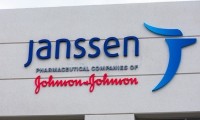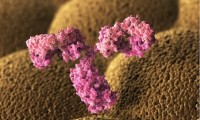-
Janssen’s patient programme becomes latest victim of data breach
- Source: drugdu
- 105
- September 11, 2023
-
Roche hits FDA delay with subcutaneous version of Tecentriq amid manufacturing process changes
- Source: drugdu
- 167
- September 9, 2023
-
BioNTech, DualityBio Move ADC into Phase III for HER2-Low Breast Cancer
- Source: drugdu
- 110
- September 5, 2023
-
Novo Bolsters Obesity Pipeline with Potential $500M Embark Biotech Buy
- Source: drugdu
- 210
- September 1, 2023
-
Pfizer’s RSV vaccine granted EC approval to protect infants and older adults
- Source: drugdu
- 127
- August 30, 2023
-
Merck, Eisai Drop Phase III Keytruda-Lenvima Trial for Head and Neck Cancer
- Source: drugdu
- 109
- August 29, 2023
-
Regeneron wins FDA approval for rare immune disease med Veopoz, expects high-dose Eylea decision in the coming weeks
- Source: drugdu
- 122
- August 22, 2023
-
AbbVie achieves win for migraine prevention drug Aquipta in Europe
- Source: drugdu
- 120
- August 22, 2023
-
Severe COVID-19 may cause long-term changes to innate immune system
- Source: drugdu
- 183
- August 21, 2023
-
FDA approves Talvey for heavily pre-treated multiple myeloma
- Source: drugdu
- 126
- August 21, 2023
your submission has already been received.
OK
Subscribe
Please enter a valid Email address!
Submit
The most relevant industry news & insight will be sent to you every two weeks.













